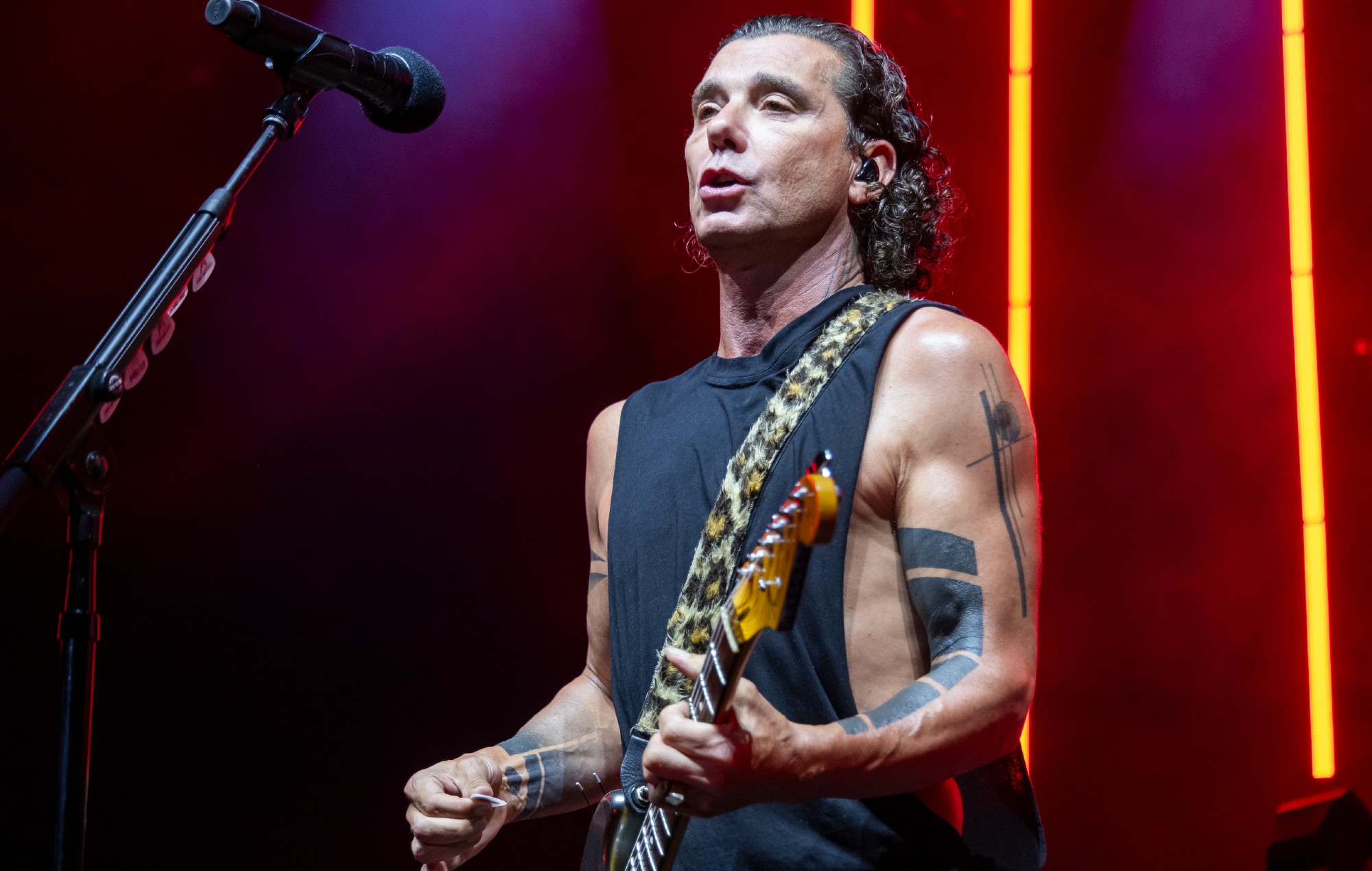Bush frontman Gavin Rossdale has revealed his concern for younger musicians and the way they’re able to make a residing by way of trendy streaming – see what he needed to say under.
- READ MORE: Bush’s Gavin Rossdale – “It was silly having beef with Dave Grohl and Trent Reznor”
The veteran rocker not too long ago appeared on an episode of Q with Tom Energy the place he and Energy mirrored on Rossdale’s work all through his profession. In the direction of the tip of their chat, Energy requested him about what he thinks is the most important distinction in atmosphere between musicians again within the ’80s and 90’s and musicians now.
Rossdale began: “Properly, fairly clearly, once I started, in case you made one thing good, folks would possibly purchase it. Now, in case you make one thing good, folks would possibly stream it. And I’ve two sons which might be poised to make music their lives, and I couldn’t be extra involved for them.”
The Bush frontman continued: “I’ve been a musician my complete life and I’m at a loss to elucidate to somebody the right way to do it, the right way to construct from the bottom up, the right way to get a profession in that. It’s simply terrifying as a result of how do musicians, how do younger bands receives a commission? I can’t work it out.”
He then highlighted streaming platforms like Spotify and file labels as the rationale artists aren’t paid effectively: “I don’t know. Possibly you get one tune with a great deal of streams and we all know that Spotify barely pays, and no matter they pay, the file firms make sure that they siphon off most of it earlier than it goes to the artist. So it’s the identical deal — artists getting screwed, file firms making a fortune and getting all the cash. So similar shitty enterprise, however in case you find it irresistible, what are you gonna do? You simply do the most effective you’ll be able to. And you’ll clearly earn cash touring, nevertheless it takes some time to construct up a catalog, so in case you wanna come and see you, that’s a crap shoot.”
Rossdale concluded: “So, the distinction is I feel it’s a lot, a lot tougher now, and it was almost unimaginable then. So, I don’t know what the chances are, however they don’t really feel good for younger musicians, which breaks my coronary heart for them as a result of we at all times want music. We at all times want folks’s opinions. AI can handle many issues, however you speak about folks regarding different folks, it’s by writing that brutally painful, trustworthy lyric that different folks can relate and get power from. That alternate won’t ever go away as a result of folks will proceed to be upset and search for different those that perceive.”
Consistent with Rossdale’s feedback, final month Björk stated that she thinks Spotify is “most likely the worst factor that has occurred to musicians”. This wasn’t the primary time that Björk has shared her ideas on the streaming platform. Again in 2015, she additionally opened up about her determination to not launch her album ‘Vulnicura’ on Spotify out of “respect” rules.
“It simply appears insane,” she stated on the time. “To work on one thing for 2 or three years after which simply, ‘Oh, right here it’s free of charge’. It’s not in regards to the cash; it’s about respect. Respect for the craft and the quantity of labor you place into it.”
Her feedback echo the outlook shared by Anthrax drummer Charlie Benante final November, when he described streaming because the place “the place music goes to die”.
“Subconsciously this can be the rationale why we don’t make data each three years or no matter, as a result of I don’t need to give it away free of charge,” he stated. “It’s mainly stealing. It’s stealing from the artist – the individuals who run music streaming websites like Spotify. I don’t subscribe to Spotify. I feel it’s the place music goes to die.”

In late January, Spotify received a lawsuit over a bundling technique it adopted which led to decreased royalty funds to songwriters. Spotify CEO Daniel Ek additionally beforehand sparked backlash for his feedback regarding the price of “creating content material”, with numerous customers and musicians describing him as “out of contact”.
Partly, the backlash associated to studies that Spotify had made earnings of over €1billion (£860m), following employees being laid off and subscription costs rising. It additionally got here as Spotify formally demonetised all songs on the platform with lower than 1,000 streams – making it tougher for artists to generate royalties from their music and limiting new artists trying to crack the music business.
